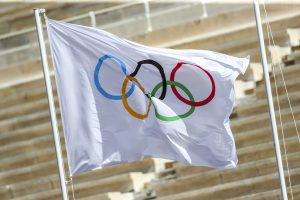North Korea sent a letter to China to explain its reasons for not being able to attend the Beijing Winter Olympics, according to the North’s Korea Central News Agency (KCNA).
In the letter, North Korea said it could not take part in the Olympics due to “the hostile forces’ moves” and “the worldwide pandemic” but supports the Chinese government’s efforts to hold “a splendid and wonderful Olympic festival,” KCNA said.
The hostile moves refer to the U.S.-led diplomatic boycott and the International Olympic Committee (IOC)’s decision to suspend North Korea from the Beijing Winter Olympics in the wake of its decision to pull out of the Tokyo Olympics due to the COVID-19 pandemic.
Under the IOC’s decision, North Korean individuals were still allowed to participate in the Beijing Olympics. However, Pyongyang has now officially announced its decision not to attend the Olympics.
With that, North Korea has officially blown up South Korean President Moon Jae-in’s last hope to reactivate his peace process by ending the 1950-53 Korean War in the Beijing Olympics. Experts say Pyongyang is unlikely to seek negotiations with Washington and Seoul before the end of Moon’s term in May. Instead of focusing on diplomacy, at the latest Workers’ Party Central Committee meeting Supreme Leader Kim Jong Un showed his strong will to fully focus on alleviating his country’s devastating food shortages and developing the country’s rural areas for this year.
According to local reports, the North Korean ambassador to China sent the letter to Chinese authorities on Wednesday – the same day Pyongyang test-launched its second hypersonic missile.
This hypersonic missile appears to be a liquid-fueled Maneuverable Reentry Vehicle (MaRV) ballistic missile and has some similarities to the Hwasong-8 tested in September 2021. The missile launched on Wednesday flew 700 kilometers and hit a target after maneuvering 120 km laterally, KCNA said. The launch verified the “reliability” of North Korea’s second hypersonic missile’s “fuel ampoule system” in winter and successfully demonstrated “the control and stability of the hypersonic gliding warhead,” KCNA reported.
Experts said that the gliding warhead of this second hypersonic missile appeared at the North’s Defense Exhibition in October. Some also said this missile has some similarities with India’s nuclear-capable Shaurya hypersonic missile, which was test-fired in October 2020.
Seoul’s Defense Ministry, however, said on Friday that the North’s assessment of the missile’s “operational range” and “lateral movement” appears to be exaggerated. In its statement, the ministry said that the missile did not travel more than 700 km with an altitude of below 50 km – which contradicts what the North claimed.
Based on the assessments of the Defense Ministry as well as independent defense experts, this missile appears not to fit either the Hypersonic Glide Vehicle (HGV) or the Hypersonic Cruise Missile (HCM) profiles. Instead, technically it is more like a MaRVed ballistic missile.
Moon and Seoul’s top security officials expressed their concerns over the North’s missile launch on Wednesday. U.S. Secretary of State Antony Blinken also said on Thursday that North Korea’s “unlawful nuclear and missile programs pose an ongoing threat,” citing the North’s latest missile launch, in the annual security consultative talks held virtually with his Japanese counterpart.
Pyongyang previously denounced Seoul and Washington when they criticized its past missile launches, but it has not made any statements yet to lambaste the so-called “double standard” of the U.S. and South Korea on the military activities of the two Koreas.
Cheong Seong-chang, the director of the Center for North Korean Studies at Sejong Institute in South Korea, said Seoul’s plan to push its “end-of-war declaration” in the Beijing Olympics proved unsuccessful as North Korea decided not to attend the Olympics.
“Unless South Korea and the international community jointly support at least two to three doses of COVID-19 vaccines, treatments, and medical equipment for treating severely ill patients first, it would be challenging for North Korea to make exchanges with its fraternal ally China and restore the dialogue with the U.S. and South Korea,” Cheong said.

































